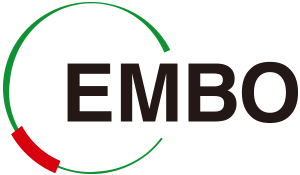
真核生物において遺伝情報の本体であるゲノムDNAは、細胞核内に収められ、タンパク質とともにクロマチンを形成し、多階層におりたたまれています。この複雑な構造は、遺伝子発現調節の根幹であり、細胞の分化や発生、疾患で変化します。細胞核とクロマチン構造形成の基本メカニズムや機能、生命現象における役割を包括的に理解しようとする機運が高まっています。
クロマチンや細胞核の研究分野において、欧米では多くの女性研究者が活躍していますが、日本ではまだ少数に限られています。本シンポジウムの午前の部では、欧州各国の教授職、研究所長を務める著名な女性研究者陣が、日本の女性研究者を応援、鼓舞するために結集します。日本国内からも多くの女性研究者の講演を予定していており、指定演者に加えて発表希望者を募集します。クロマチン研究の新たな局面を知るとともに、ロールモデルやキャリア形成の可能性を体感できる場とします。聴講、ディスカッションには男性大歓迎です。昼食(無料)に参加するには登録が必要です。
午後は、欧州分子生物学研究所EMBOによる「研究室運営(ラボマネージメント)」に関するコース*(短縮版)を開催します。よい研究を展開するために必要なリーダーシップ、研究の統括、問題解決、若手研究者の育成、危機管理などについて講義と小グループに分かれてのディスカッションを行います。欧米では比較的一般的となりつつあるものの、日本ではまだなじみのないもので、独立型研究室運営を論理的に学ぶ機会になります。上記の海外からの講演者も本コースディスカッションに参加して、コースを援助します。本コースは限定40名を対象とします。PIをめざす若手はもちろんですが、すでにPIになっている方、研究室運営をサポートする役割の方など、いずれの状況でもかまいません。興味と熱意のある方は男女、年齢、職位は問いませんので、奮ってご参加ください(受講料3千円、懇親会費5千円)。
*EMBO「Laboratory Leadership for Group Leaders」は、本来3泊4日、宿泊・食事・教材付きで 2,600ユーロ(約325,000 円)で行われています。
http://lab-management.embo.org/dates/ELL-GL-2019
In eukaryotic cells, genomic DNA is wrapped around histone octamers to form nucleosomes and further forms the higher order structure called chromatin. The chromatin fiber is then folded into distinct functional domains in the nucleus. This intricate structure is key to the regulation of gene expression, and changes in expression patterns during cell differentiation, development and disease. Exploring and understanding the basic mechanisms of chromatin domain formation and their re-establishment during cell and organismal propagation are of fundamental biomedical importance.
This symposium, a satellite symposium of the Japanese Society of Cell Biology and Protein Science Society of Japan Meeting also held in Kobe, will present the cutting edge of chromatin biology, by featuring leading women scientists in the field of chromatin biology. The morning session will include invited speakers from Europe and from Japan, including three institute heads from Europe. Recognized leaders from Japan are also invited to participate, in particular promising younger group leaders. Several speakers will be chosen from submitted abstracts. This symposium is open to all participants, men as well as women, although all speakers will be women. The goal is to compensate for the underrepresentation of women giving plenary talks at many conferences. Free lunch is provided for registered participants.
In the afternoon, we will offer a leadership course, which is open to men and women, and will be based on the topics covered by the EMBO Laboratory Leadership Course regularly offered by the European Molecular Biology Organization in Heidelberg. The lab management course usually lasts 3 days costs EUR 2,600 (http://lab-management.embo.org/dates/ELL-GL-2019), so this session will rather be overview of themes that are important for successful scientific management (e.g., leadership, research integrity, problem solving, conflict resolution and mentoring). There will be smaller group discussions on specific topics that research team leaders encounter, led in part by the invited speakers from Europe, who will also help guide the discussions on institute and lab leadership in breakout sessions. Even though it will not replace a full EMBO Lab management course, we feel that it would be a valuable opportunity for participants to learn institute and laboratory management skills. We emphasize that both males and females are welcome to join both the symposium and the course. Participation fees will be applied (3,000 and 5,000 yen for the course and banquet, respectively).
| Date | June 23, 2019 9:00- |
|---|---|
| 日時 | 2019年6月23日 9時~ |
| Venue | RIKEN Center for Biosystems Dynamics Research (Kobe, Developmental Biology Building C, Auditorium) 2-2-3 Minatojima-minamimachi, Chuo-ku, Kobe 650-0047 JAPAN |
| 会場 | 理化学研究所 生命機能科学研究センター(神戸 発生・再生研究棟C オーディトリウム) |
| Language | English |
| 言語 | 英語 |
| Participation Fee and registrations | Morning seminar: for free, registration is required for lunch. EMBO COURSE: 3,000 yen, registration is REQUIRED. Banquet: 5,000 yen, registration is REQIRED. Registration deadline:May 10, 2019 |
| 参加登録 | 講演(午前): 無料、ただし昼食参加の場合は登録が必要 EMBO コース(午後): 3,000 円、登録が必要 懇親会: 5,000 円、登録が必要 登録締め切り:2019年5月10日 |
| ポスターDL |
View Poster
(pdf 577.0 KB) |
Susan Gasser (FMI, Switzerland)
Ichiro Hiratani (RIKEN BDR, Japan)
Yuki Okada (Univ. Tokyo, Japan)
Noriko Saitoh (JFCR, Japan)
Satoko Arakawa (Tokyo Medical and Dental Univ., Japan)
Junko Kanoh (Osaka Univ., Japan)
Miho Ohsugi (Univ. Tokyo, Japan)
Masako Tada (Toho Univ., Japan)
Kiyoe Ura (Chiba Univ., Japan)
Noriko Yasuhara (Nihon Univ., Japan)
MEXT Grant-in-Aid for Scientific Res. on Innovative Areas, Chromatin Potential (Leader: Hiroshi Kimura)
Friedrich Miescher Institute for Biomedical Research, Basel
Riken
Joint Annual Meeting of 71st JSCB & 19th PSSJ
Active Motif
Daiz Energy Co., Ltd
Fondation Ipsen
Gellex International
Helmholtz Zentrum München
Journal of Cell Biology
MEXT Grant-in-Aid for Scientific Res. on Innovative Areas, Chromosome OS (Leader: Katsuhiko Shirahige)
nacalai tesque
SECOM Science and Technology Foundation
The Naito Foundation
Geneviève Almouzni (Director of Institut Curie, France)
Susan Gasser (Director of FMI, Switzerland)
Tokuko Haraguchi (NICT, Japan)
Miho Ohsugi (Univ. Tokyo, Japan)
Hisako Ohtsubo (Nihon Univ., Japan)
Noriko Osumi (Vice President of Tohoku Univ., Japan)
Ana Pombo (MDC, Germany)
Daniela Rhodes (NTU, Singapore)
Noriko Saitoh (JFCR, Japan)
Maria Elena Torres-Padilla (Director of IES, Germany)
Kiyoe Ura (Chiba Univ., Japan)
Noriko Yasuhara (Nihon Univ., Japan)
| 08:30- | Reception |
|---|---|
| 09:00-09:02 | Opening remarks(Noriko Saitoh and Susan Gasser) |
| 09:02-10:22 |
Session 1. Chromatin and nuclear organization Chaired by ME. Torres-Padilla Susan Gasser (Friedrich Miescher Institute for Biomedical Research, Switzerland) 3D genome regulation: from local contacts to global nuclear organisation Mammalian-specific mechanism for regulating the timing of pronuclear formation |
| 10:22-11:17 |
Session 2. Nucleosome dynamics Chaired by N. Osumi Daniela Rhodes (Nanyang Technological University, Singapore) |
| 11:17-11:37 | Coffee Break |
| 11:37-12:47 |
Session 3. Chromatin in development and disease Chaired by Y. Okada Noriko Osumi (Tohoku University, Japan) |
| 12:47-12:50 | Closing remarks(Noriko Osumi) |
| Transparent Publishing & Open Science: how to share reproducible data Bernd Pulverer (Chief Editor of EMBO Journal) |
| 13:40-13:45 | Welcome and Introduction Susan Gasser |
||||||||||||||||||||||||||||||||
|---|---|---|---|---|---|---|---|---|---|---|---|---|---|---|---|---|---|---|---|---|---|---|---|---|---|---|---|---|---|---|---|---|---|
| 13:45-14:00 | Introduction activity for attendees Sam Krahl (Project coordinator at EMBO solutions GmbH) |
||||||||||||||||||||||||||||||||
| 14:00-15:30 | Lecture on the theme: Excellent leadership in research Sam Krahl |
||||||||||||||||||||||||||||||||
| 15:30-15:50 | Coffee Break (20 min) | ||||||||||||||||||||||||||||||||
| 15:50-16:05 | Situation of women leadership in science in Japan Hisako Ohtsubo (Nihon Univ., Japan) |
||||||||||||||||||||||||||||||||
| 16:05-16:30 | Short talks from European research team/institute leaders: What was the biggest career challenge I faced and how did I deal with it ? Geneviève Almouzni, Susan Gasser, Ana Pombo, Daniela Rhodes, Maria Elena Torres-Padilla |
||||||||||||||||||||||||||||||||
| 16:30-18:00 | Round-table discussions |
||||||||||||||||||||||||||||||||
|
|||||||||||||||||||||||||||||||||
| 18:00-18:45 | Wrap up with reporting of each table discussion to the others. | ||||||||||||||||||||||||||||||||
| 18:45-19:00 | Question and answer panel | ||||||||||||||||||||||||||||||||
| 19:00-19:10 | Closing remarks Sam Krahl |
||||||||||||||||||||||||||||||||
| Transportation will be announced |
Contact: Noriko Saitoh (JFCR, Japan) : wisj.2019@gmail.com